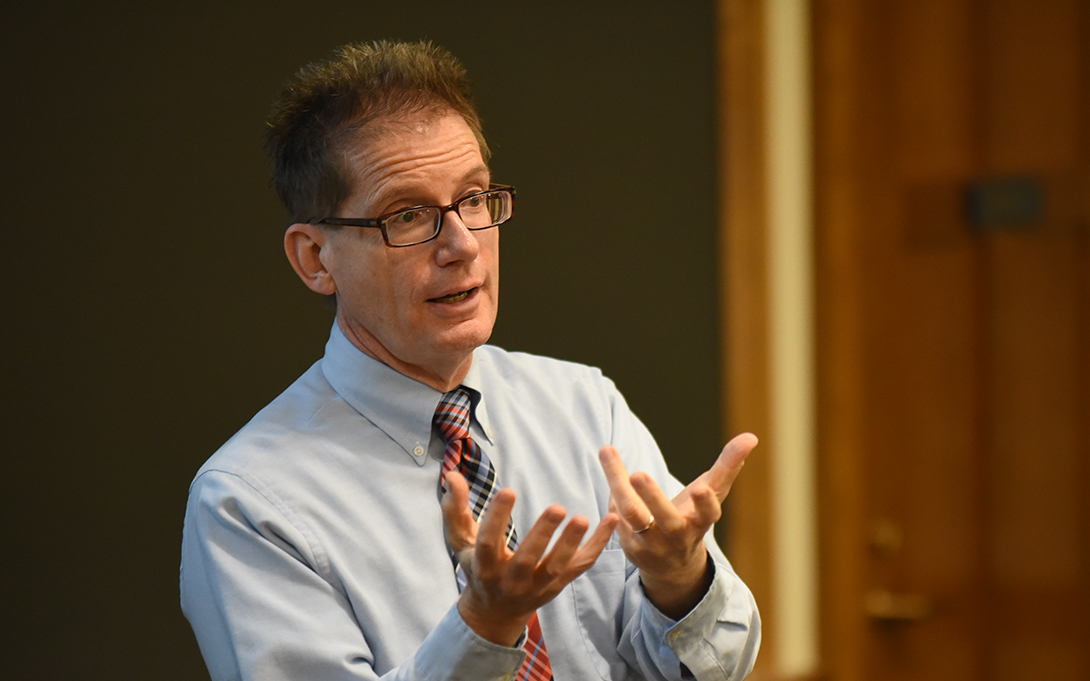
The administration of Donald Trump has used executive orders and regulatory changes in a far-reaching expansion of presidential power to reverse many policies of the Obama administration. In a new book published by the Brookings Institution Press, Ford School professor Barry Rabe looks at the impact of the administrative presidency, and at the “forces of federalism” that constrained some of those impacts.
In Trump, the Administrative Presidency, and Federalism, Rabe focuses on environmental policy, while co-authors Frank Thompson of Rutgers and Kenneth Wong of Brown University examined health and education policy, respectively. They conclude that the administration was very aggressive and strategic in employing “executive action in myriad forms” in attempting to reverse many Obama administration policies. The authors illuminate what they call the Trump administration’s “hostile takeover” of the federal bureaucracy.
The Trump administration was at times successful, they say, using political appointments, executive orders, regulatory revisions, waivers of existing laws, and other administrative and legal tools to undercut climate regulations for the electricity, transportation, oil and gas and landfill sectors under the Clean Air Act, among other Obama policies.
The forces of federalism that provided restraint included state attorneys general, governors, and legislatures, who responded in the courts and through alternative policy development. In addition to examining their policy areas broadly, the authors also consider the effects of the pandemic on the Trump administrative presidency.
In the chapter on environmental policy called “Search and Destroy in Climate Change Policy,” Rabe notes the Trump administration pushed ahead with efforts to promulgate new vehicle emission standards which were far more modest than what the Obama administration had established. California had sought tougher standards through a long-standing waiver authority that was reversed by the Trump administration. “The administration also pressed the courts to provide timely and favorable decisions on legal challenges to other rules it had pursued to weaken climate regulations, despite the pandemic,” he writes. As well, it pulled the U.S. out of the Paris Agreement to reduce global greenhouse emissions and ignored a methane reduction agreement that had been forged with Canada and Mexico in 2016.
Expansion of presidential power has been a continuum since the Reagan administration. In the face of increased partisanship and congressional dysfunction, “pressures on the executive branch to step into the breach and shape policy have intensified,” they say.
The concluding chapter deals with the implications for the fabric of American democracy. To what degree did the courts and the forces of federalism substitute for an ineffective Congress in checking actions of the Trump administration that threatened the separation-of-powers system and the rule of law?
“The Trump administrative presidency vividly illustrates how political principals, rather than administrative agents, can threaten democracy. Going forward, chief executives regardless of party are likely to pursue assertive administrative presidencies, particularly if Congresses led by either party continue to struggle to provide clear and timely direction on key policy issues through legislation. If so, one can hope that the forces of federalism and the courts remain important checks on presidential power. Even more fundamentally, we can hope that future presidents possess a deep and abiding commitment to the norms of forbearance and mutual toleration needed to sustain American democracy.”
Rabe and Ford School researcher Josh Basseches will discuss the climate aspects of the book during a December 9 webinar for the North American Colloquium (NAC). NAC is a collaborative effort of the Ford School's International Policy Center, in partnership with the University of Toronto's Munk School and the National Autonomous University of Mexico's Center for North American Research, which seeks to strengthen a wider North American policy conversation and more fruitful trilateral cooperation between Canada, Mexico and the United States.
